
A Friday occurring on the 13th day of any month is considered to be a day of bad luck in English, German, Polish and Portuguese-speaking cultures around the globe. Similar superstitions exist in some other traditions. In Greece or Spain, for example, Tuesday the 13th takes the same role. The fear of Friday the 13th is called paraskavedekatriaphobia (a word that is derived from the concatenation of the Greek words Παρασκευή, δεκατρείς, and φοβία, meaning Friday, thirteen, and phobia respectively; alternative spellings include paraskevodekatriaphobia or paraskevidekatriaphobia) or friggatriskaidekaphobia, and is a specialized form of triskaidekaphobia, a phobia (fear) of the number thirteen.
History of Friday the 13th
No historical date has been verifiably identified as the origin of the superstition. Before the 20th century, although there is evidence that the number 13 was considered unlucky, and Friday was considered unlucky, there was no link between them. The first documented mention of a "Friday the 13th" is generally listed as occurring in the early 1900's.
However, many popular stories exist about the origin of the concept:
The Last Supper which is supposed by popular Christian belief to have been on Thursday, with Judas numbered among the thirteen guests (Jesus plus his 12 apostles), and that the Crucifixion of Jesus which is supposed by popular Christian belief to have occurred "Friday." However, Judas was not actually present for the latter part of the meal.
One theory, offered in the novel Foucault's Pendulum holds that it came about not as the result of a convergence, but a catastrophe, a single historical event that happened nearly 700 years ago.
The catastrophe was the decimation of the Knights Templar, the legendary order of "warrior monks" formed during the Christian Crusades to combat Islam. Renowned as a fighting force for 200 years, by the 1300s the order had grown so pervasive and powerful it was perceived as a political threat by kings and popes alike and brought down by a church-state conspiracy, as recounted by Katharine Kurtz in Tales of the Knights Templar (Warner Books: 1995):
"On October 13, 1307, a day so infamous that Friday the 13th would become a synonym for ill fortune, officers of King Philip IV of France carried out mass arrests in a well-coordinated dawn raid that left several thousand Templars — knights, sergeants, priests, and serving brethren — in chains, charged with heresy, blasphemy, various obscenities, and homosexual practices. None of these charges was ever proven, even in France — and the Order was found innocent elsewhere — but in the seven years following the arrests, hundreds of Templars suffered excruciating tortures intended to force 'confessions,' and more than a hundred died under torture or were executed by burning at the stake."
A Thoroughly Modern Phenomenon
There are drawbacks to the "day so infamous" thesis, not the least of which is that it attributes enormous cultural significance to a relatively obscure historical event. Even more problematic, for this or any other theory positing premodern origins for Friday the 13th superstitions, is the fact that no one has been able to document the existence of such beliefs prior to the 19th century. If people who lived before the late 1800s perceived Friday the 13th as a day of special misfortune, no evidence has been found to prove it. As a result, some scholars are now convinced the stigma is a thoroughly modern phenomenon exacerbated by 20th-century media hype.
Info about Knights Templar is provided by David Emery.
Effects in people and cultures
"It's been estimated that [U.S] $800 or $900 million is lost in business on this day because people will not fly or do business they would normally do." [4]
Some people are so paralyzed by fear that they are simply unable to get out of bed when Friday the 13th rolls around. The Stress Management Center and Phobia Institute estimates that more than 17 million people are affected by a fear of this day. [5] Despite that, representatives for both Delta and Continental Airlines say that their airlines don't suffer from any noticeable drop in travel on those Fridays. [6]
A British Medical Journal study has shown that there is a significant increase in traffic-related accidents on Friday the 13ths.
http://en.wikipedia.org/wiki/Friday_the_13th
Friday the 13th is a day fraught with peril.
http://www.snopes.com/luck/friday13.asp
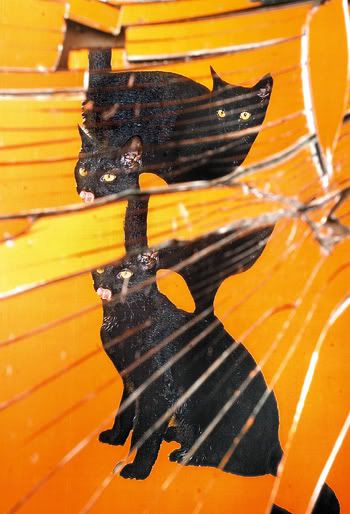
Why Friday the 13th Is Unlucky
http://urbanlegends.about.com/cs/historical/a/friday_the_13th.htm
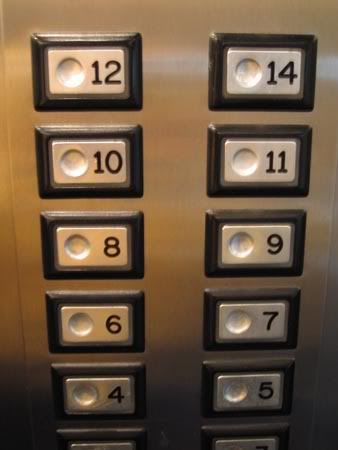
Friday the 13th
Ever wonder where the Friday the 13th superstition got it's start? Or why the number 13 or the day Friday are considered unlucky? Find out all about the history of this widespread and ancient superstition.
http://personalweb.about.com/od/fridaythe13th/Friday_the_13th.htm
Fear of Friday the 13th
http://reference.aol.com/quizzes/fear-of-friday-the-13th
Friday the 13th: Superstition or phobia?
http://www.citizensvoice.com/site/news.cfm?newsid=18582638&BRD=2259&PAG=461&dept_id=571464&rfi=6
Triskaidekaphobia (from greek tris=three, kai=and, deka=ten) is a fear of the number 13. It is a superstition. A specific fear of Friday the 13th is called paraskavedekatriaphobia or friggatriskaidekaphobia.
http://en.wikipedia.org/wiki/Triskaidekaphobia
Some Christian traditions have it that at the Last Supper Judas, the disciple who betrayed Jesus, was the 13th to sit at the table, and that for this reason 13 is considered to carry a curse of sorts.
Fear of 13 has also been linked to that fact that a lunisolar calendar must have 13 months in some years, while the solar Gregorian calendar and lunar Islamic calendar always have 12 months in a year.
Triskaidekaphobia may have also affected the Vikings — it is believed that Loki in the Norse pantheon was the 13th god. More specifically, Loki was believed to have engineered the murder of Baldr, and was the 13th guest to arrive at the funeral. This is perhaps related to the superstition that if thirteen people gather, one of them will die in the following year. This was later Christianized in some traditions into saying that Satan was the 13th angel.
The Mesopotamian Code of Hammurabi (ca. 1760 BC) omits 13 in its numbered list.[citation needed] This seems to indicate a superstition existed long before the Christian era.
See also Friday the 13th for information concerning the traditions and superstitions surrounding this supposedly unlucky day.
The arrest and murder of the Knights Templar occurred on Friday October 13, 1307. This event is incorrectly said to be the origin of the supposed unluckiness of Friday the 13th.
In the US, many tall buildings do not have a floor numbered "13" (see picture at left for an example).
On some passenger aircraft there is no seating row numbered "13" (see picture at right for an example).
In Formula One and many other racing categories, no vehicle carries the number 13.[1]
Microsoft will not be naming its next Office release as Office 13 (Microsoft shipped Office 12 (a.k.a Microsoft Office 2007) in November 2006) - the working title for the next release of Office (which includes Microsoft Exchange Server) is called Microsoft Office 14.

paraskevidekatriaphobia
http://skepdic.com/paraskevidekatriaphobia.html
Friggatriskaidekaphobia or a morbid, irrational fear of Friday the 13th. Therapist Dr. Donald Dossey, whose specialty is treating people with irrational fears, coined the term paraskevidekatriaphobia. Perhaps Dr. Dossey has an irrational fear of friggatriskaidekaphobia. Anyway, he claims that when you can pronounce the word paraskevidekatriaphobia you are cured of the irrational fear. I'd like to see the science, however.
If you base your belief on media attention, superstition about Friday the 13th might be the number one superstition in America today. It appears, however, that only about 10% of us believe that Friday the 13th is an unlucky day (Zusne and Jones 1989, p. 244, put the number at 7%; Vyse 2000, p. 18, cites a 1990 Gallup poll that put the number at 9%, and a 2000 survey by American Demographics put it at 13%).
Friday may be considered unlucky because Christ is thought to have been crucified on a Friday, which was execution day among the Romans. Yet, Christians don't call it Bad Friday. Friday was also Hangman's Day in Britain. Some even think that Friday was the day God threw Adam and Eve out of the garden of Eden, which is unlikely since the concept of Friday hadn't been invented yet.
The irrational fear of things associated with the number thirteen is known as triskaidekaphobia. Some think that thirteen is an unlucky number because there were thirteen people at the Last Supper. Some think thirteen owes its bad reputation to Loki, the Norse god of evil, who started a riot when he crashed a banquet at Valhalla attended by twelve gods. However, the number 13 was considered a lucky number in ancient Egypt and China. According to a 1996 Gallup poll, 9 percent of Americans admit to being superstitious about the number thirteen.
There are several distinct reasons why certain days, numbers, colors, etc. are considered lucky or unlucky by different people or cultures, but the general reason for such superstitions seems to be to assert some sort of control and order over events that are essentially uncertain. Belief in lucky or unlucky things imposes purpose, design, meaning, and significance on otherwise indifferent and purposeless events. Confirmation bias assures that such superstitions will be supported by plenty of validating anecdotes.
Is Friday the 13th a particularly unlucky day? It could be, if you believe it is. Just as some prophecies are self-fulfilling, some beliefs are self-validating.
Fear of 13th no joke
http://www.bellevueleader.com/site/tab3.cfm?newsid=18569813&BRD=2712&PAG=461&dept_id=559852&rfi=6
Some people avoid planning things on this day. Others actually skip work altogether. It's Friday the 13th.
If you are, you have what is known as paraskevidekatriaphobia, the fear of Friday the 13th. If you stumbled over the word, you're probably not alone. The word comes from a concentration of three Greek words - none of which we'll try to spell - meaning Friday, 13 and phobia.
Friday marks the second time this year the scary day has hit. For most people, the day is just considered bad luck or has negative connotations, as people avoid weddings or other events on the day.
All over the world, countries such as Germany, Poland, Portugal and Spain have similar superstitions that differ a bit. In Russia, for example, the day is Monday. In Greece or Spain, it's Tuesday. But, at the end of the day, it's just another day - that is unless you have that pesky paraskevidekatriaphobia.
In fact, it's so scary for some people, they'll be paralyzed and unable to get out of bed come Friday. People skip work, avoid appointments and huddle up inside their homes in fear of something bad happening. It's estimated nearly 21 million Americans suffer from the phobia, according to Dr. Donald Dossey, a behavioral scientist who specializes in paraskevidekatriaphobia.
Gallup polls have also come out with the same results. More than 15 years ago, a poll showed nearly 10 percent of respondents feared Friday the 13th. That has since dipped a bit, with younger people usually being less superstitious than their older counterparts.
Still, it's estimated that United States' businesses lose about $800 million each year because some people won't go to work on Friday the 13th, according to the Stress Management Center and Phobia Institute.
And for those who may be laughing at such a phobia, don't. It's one of a variety of phobias, which for most people seem strange, but yet control some people's actions for their entire lives.
Phobias like ablutophobia, the fear of washing or bathing, lachanophobia, the fear of vegetables, and soceraphobia, the fear of one's parents-in-law.
Back to paraskevidekatriaphobia, one that doesn't surface too often throughout the year, since most years only have one or two unlucky days - except for 2009 of course, which will have three.
And what about those who had the unexceptional bad luck of being born on the day? For example, Mary-Kate and Ashley Olsen, Margaret Thatcher and Fidel Castro. The day is also claimed by some as their last - Thomas Jefferson and Hubert Humphrey died on Friday the 13th.
So when you roll out of bed this Friday and easily, without fear, make your way to work, put in a good day's effort without fuss or protest, consider yourself somewhat lucky. There are millions out there who called in sick, stayed at home and waited for Saturday the 14th.
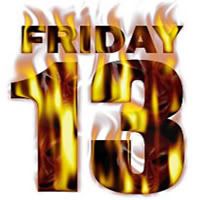
Why is Friday 13th considered unlucky?
http://www.woodlands-junior.kent.sch.uk/customs/questions/friday13.htm
A fear of Friday the 13th is called paraskevidekatriaphobia.
(pair.uh.skee.vee.dek.uh.tree.uh.foh.bee.uh)
The term is based on the Greek words: paraskevi - Friday dekatria - thirteen -phobia - indicates fear
The belief that Friday 13th is an unlucky day is one of the most widely know superstitions in Britain today.
The superstition surrounding Friday the 13th is actually a combination of two separate fears — the fear of the number 13, called triskaidekaphobia, and the fear of Fridays.
Unlucky 13
It is unlucky to have thirteen at a table or in a company. The number 13, in the Christian faith, is the number of people at the Last Supper, with the 13th guest at the table being the traitor, Judas.
The unlucky number 13 is often left out when numbering houses, flats and hotel rooms.
Fridays
Fridays have been considered an unlucky day since the medieval times.
It is generally considered bad luck to start anything on a Friday - a new journey, job, marriage, business project, giving birth, moving house
It is unlucky to cut fingernails and hair on a Friday.
In Britain, Friday was the conventional day for public hangings, and there were supposedly 13 steps leading up to the noose!
Friday is consider an unlucky day in some religions
Muslims tout Friday as the day Allah created Adam
Adam and Eve ate the forbidden fruit on a Friday and later died on a Friday.
Christians consider Friday as the day on which Christ was crucified by the Romans.

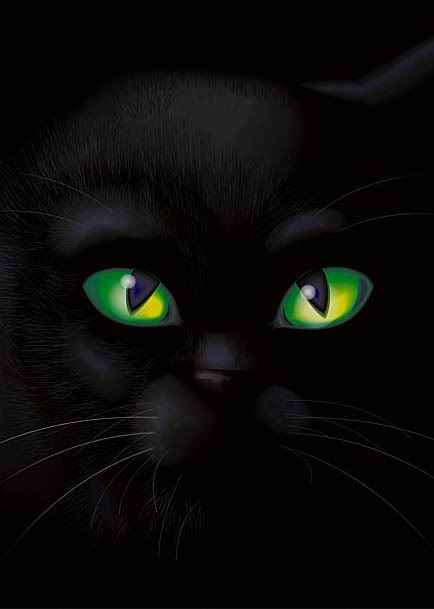
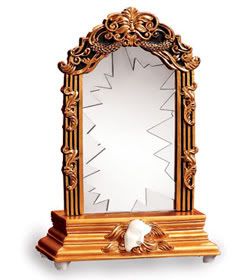
Today is Friday the 13th, considered by many to be a harbinger of bad luck and catastrophe.
http://www.citizensvoice.com/site/news.cfm?newsid=18582638&BRD=2259&PAG=461&dept_id=571464&rfi=6
The day comes just six days after July 7, 2007 — or 7/7/07 — which spurred an unprecedented number of people to flock to Mohegan Sun at Pocono Downs in hopes of striking it rich on the slots or track.
That most likely won’t be the case today, Jim Wise, Pocono Downs vice president of marketing, said, adding he doesn’t expect the Plains Township casino to be empty, though.
“We haven’t really seen any drop-off on the Friday the 13ths we’ve had so far,” he said. “People for the most part take that as kind of a running joke for situations during the day. If they’re not playing well, they’ll blame it on Friday the 13th. (But), basically, it is not a real powerful obstruction to coming out to play the slots.”
The casino isn’t planning any special promotions like on 7/7/07, when it provided a free marriage after the seventh race of the day and gave away $777 every hour.
“For the most part, I find that people generally don’t even realize it’s a Friday the 13th when it is a Friday the 13th,” Wise said.
Unlike 7/07/07, which only happens once a century, Friday the 13ths are common. Today marks the second Friday the 13th this year, the other falling in April.
The 2008 calendar year will see one Friday the 13th, while 2009 will see three. By 2020, 36 Friday the 13ths will have already passed in this century.
Exactly why Friday the 13th is considered unlucky is debatable. Folklore suggests the number 13 may be unlucky because 13 people, including Judas, were present for Jesus’ Last Supper.
Jesus was also supposedly crucified on a Friday, making that an unlucky day of the week. Married, Friday and the number 13 just add to the bad luck of each other.
Another popular story suggests the unlucky date was born when the king of France and Pope Clement V burned Jacques de Molay, last Grand Master of the Knights Templar, at the stake on a Friday the 13th in 1314, said Scott Petullo, a numerologist based in Denver, Colo. As a numerologist, Petullo studies numbers, such as a person’s birthdate, to find numeral patterns before he can make predictions of a person’s fate. Thirteen is a “karmic debt number,” meaning it has much more challenging karma around it than other numbers, Petullo said.
If the number 13 appears regularly for a person, it could represent laziness, rigidity and inefficiency, Petullo said. Thirteen could also mean a person will have a more demanding work period ahead of him, Petullo said. The 13th card in a tarot deck is also the death card, Petullo said.
“I can see how people would say it’s unlucky because it’s one of those karmic debt numbers,” he said.
But, 13 can also represent impending wealth or material success, Petullo said.
Not that people are using that little fact to cash in, though. Pennsylvania Lottery officials report the last time its fiscal week included a Friday the 13th, lottery sales did not dramatically fluctuate.
When Friday the 13th fell in April, the lottery grossed $58.1 million in its fiscal week, compared to $57.7 million for the same week in the previous year, which did not include a Friday the 13th.
“We’ve never noticed any significant drop that we would attribute to any Friday the 13th,” Pennsylvania Lottery spokeswoman Cris Stambaugh said.
While no scientific data strongly suggests a correlation between Friday the 13th and bad luck, more than 17 to 21 million Americans suffer from paraskevidekatriaphobia, fear of Friday the 13th, according to the Stress Management Center and Phobia Institute’s Web site.
Charles Brooks, psychology department head at King’s College, remembers reading a story about a man who feared Friday the 13th so much, he stayed in bed on the day. He did the same on the 27th day of every month, too, Brooks recalls, because 13 letters spelled “twenty-seventh.”
“Theoretically, people can become afraid of anything,” Brooks said.
A study published in the American Journal of Psychiatry in 2001 found that women were more likely to die in traffic accidents on Friday the 13th. The study, based on Finnish data, was later refuted.
Another study filed with the British Medical Journal in 1993 found the risk of hospital admission because of traffic accidents increased by as much as 52 percent on Friday the 13th.
“Staying at home is recommended,” the report concluded.
Though the Pennsylvania Department of Transportation could not immediately provide specific data, it reported no connection between traffic accidents and Friday the 13th.
“We haven’t noticed if there’s been a specific spike in anything relating to Friday the 13th,” PennDOT spokeswoman Alison Wenger said.
And if there does happen to be a slew of traffic accidents today, at least one hospital won’t be providing any extra staff in anticipation of Friday the 13th.
“It’s definitely business as usual on Friday,” said Amy Lingobardo, public relations and marketing specialist at Geisinger Wyoming Valley Medical Center in Plains Township.
“The injuries we’re expecting are the same ... and will vary to minor or severe as they do on every other day.”
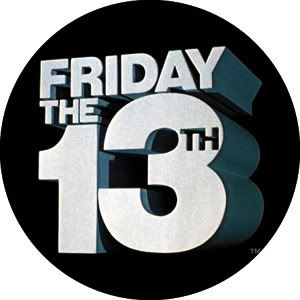
Freaky Friday
Ever wonder what the big deal is about Friday the 13th? We did, and found most of the superstition is rooted in religion.
http://www.beliefnet.com/story/118/story_11851_1.html
Ever wonder what the big deal is about this silly date? We did. It turns out the history of Friday the 13th is complicated. There are superstitions about Friday, superstitions about the number 13--which together seem to create the fear of Friday the 13th. Most of these superstitions are rooted in religion.
Amazingly, folklorists say Friday the 13th is probably the most widespread superstition in America. There's even a name for the phobia attached to it: paraskevidekatriaphobia. Maybe a little information (see below) will help sufferers of this phobia. Or maybe we'll all just dive for cover on Friday the 13th.
Superstitions about the Number 13
According to the 1925 book Popular Superstitions, fear of the number 13 is so widespread around the world that "it seems clear that, to the primitive mind of early Man, [13] had no real meaning--he stopped at 12. So persistent are these old instincts that, even today, we stop at `Twelve Times Twelve' in our school multiplication triplication tables, though there is absolutely no reason whatever why we should do so."
According to this theory, since 13 represented the unknown to primitive people, it was "dangerous."
According to David Emery of About.com, 13-phobia may have come from the Hindus, who apparently believed it was always unlucky for 13 people to gather in one place. A version of the same superstition also from the Vikings: Twelve gods were invited to a banquet at Valhalla. Loki, the Evil One, god of mischief, had been excluded from the guest list but crashed the party, bringing the total to 13. Loki then proceeded to incite Hod, the blind god of winter, to attack Balder the Good, who was a favorite of the gods. Hod took a spear of mistletoe offered by Loki and hurled it at Balder, killing him instantly.
Sometime after that moment in history, the superstition attached itself to the story of the Last Supper of Jesus and the 12 disciples. (Twelve plus one equals 13.) Judas, who rose first from the table, was the first to die.
On the other hand, the Egyptians at the time of the pharoahs considered 13 lucky, because they believed life unfolded in 12 stages, and that there was a 13th stage-the afterlife-beyond. That meant the number 13 symbolized death-as a happy transformation. Egyptian civilization perished, but the symbolism of the number 13 lived on as fear of death. (In Tarot decks the "Death" card bears the number 13 but retains its original, positive meaning: transformation.)
In ancient goddess-worshipping cultures 13 was also a lucky number--because it corresponded to the number of lunar (menstrual) cycles in a year (13 x 28 = 364 days). (The "Earth Mother of Laussel," a 27,000-year-old carving near the Lascaux caves in France, depicts a female figure holding a crescent-shaped horn bearing 13 notches.) Later, according to some historians, 13 got a bad name-particularly among early Christian patriarchs--because it represented femininity.
Superstitions about Friday
Many people consider Friday unlucky because that's the day of Jesus' Crucifixion, but historians believe the superstition goes much farther back and has something to do with the sacrifices offered to the goddess Frigg (goddess of marriage and fertility) or Freya (goddess of sex and fertility) or both, in Norse mythology.
Frigg/Freya's emblem was the fish, which was associated with the worship of love and was offered by the Scandinavians to their goddess on the sixth day of the week, Friday. But the worship of love on Fridays, according to Popular Superstitions, developed into "a series of filthy and indecent rites and practices."
According to Emery, Friday was considered lucky, especially as a day to get married, because of its associations with love. In other pagan cultures, Friday was the sabbath, a day of worship. Once Christianity entered the scene, Freya-whose sacred animal was a cat--was recast in folklore as a witch. In the Middle Ages, Friday was known as the "Witches' Sabbath."
Later, early Christians began attributing just about everything terrible to Friday: Eve offering Adam the apple in the Garden of Eden; Abel's murder by his brother, Cain; St. Stephen's stoning; the Massacre of the Innocents by Herod; the flight of the children of Israel through the Red Sea; the Great Flood; the destruction of the Temple of Solomon; and the Confusion of Tongues at the Tower of Babel.
Which brings us to.
Superstitions about Friday the 13th
Add it up, and Friday the 13th is clearly doomed as a bad luck kinda day.
Most historians believe the main reason--in addition to all the gloom and doom you just read above--stems from the Last Supper. Jesus and his 12 disciples gathered in the Upper Room, where Jesus predicted that one of them would betray him. Here is how Jesus' words are portrayed in the Gospel: "Jesus answered them, Have not I chosen you twelve, and one of you is a devil? He spake of Judas Iscariot . . for he it was that should betray him." (John 6: 70-71)
And that scene, of course, set the stage for the Crucifixion, on Good Friday.
Some sources add an additional wrinkle, however. They pinpoint the origin of Friday the 13th-phobia to a specific historical event: the rounding up of the Knights Templar for torture and execution by King Philip IV of France on Friday, October 13, 1307.
Read and weep. Shiver with fear. Dive for cover.
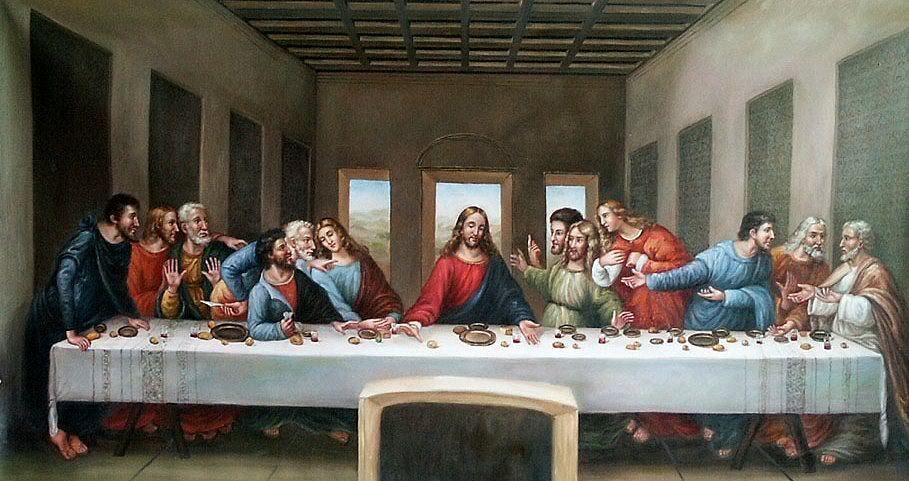
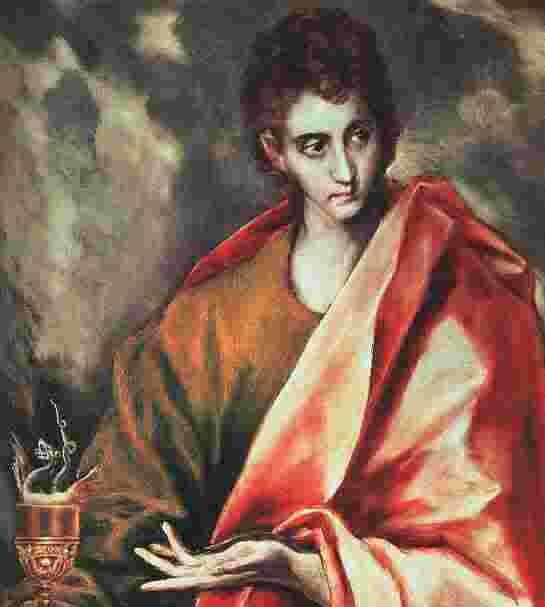
Friday the 13th Phobia Rooted in Ancient History
http://news.nationalgeographic.com/news/2004/02/0212_040212_friday13.html
This Friday some people will be so paralyzed with fear they simply won't get out of bed. Others will steadfastly refuse to fly on an airplane, buy a house, or act on a hot stock tip. It's Friday the 13th, and they're freaked out.
"It's been estimated that [U.S] $800 or $900 million is lost in business on this day because people will not fly or do business they would normally do," said Donald Dossey, founder of the Stress Management Center and Phobia Institute in Asheville, North Carolina.
Among other services, Dossey's organization counsels clients on how to overcome fear of Friday the 13th, a phobia that he estimates afflicts 17 to 21 million people in the United States.
Symptoms range from mild anxiety to full-blown panic attacks. The latter may cause people to reshuffle schedules or miss an entire day's work.
When it comes to bad luck of any kind, Richard Wiseman—a psychologist at the University of Hertfordshire in Hatfield, England—found that people who consider themselves unlucky are more likely to believe in superstitions associated with bad luck.
"Their beliefs and behavior are likely to be part of a much bigger worldview," he said. "They will believe that luck is a magical force and that it can ruin their lives."
Wiseman found that one quarter of the 2,068 people questioned in a 2003 survey associate the number 13 with bad luck. People with such feelings, he found, are more likely to be anxious on days like Friday the 13th and thus more prone to have accidents. In other words, being afraid of Friday the 13th could be their undoing.
Ominous Number
So how did Friday the 13th become such an unlucky day?
Dossey, also a folklore historian and author of Holiday Folklore, Phobias and Fun, said fear of Friday the 13th is rooted in ancient, separate bad-luck associations with the number 13 and the day Friday. The two unlucky entities ultimately combined to make one super unlucky day.
Dossey traces the fear of 13 to a Norse myth about 12 gods having a dinner party at Valhalla, their heaven. In walked the uninvited 13th guest, the mischievous Loki. Once there, Loki arranged for Hoder, the blind god of darkness, to shoot Balder the Beautiful, the god of joy and gladness, with a mistletoe-tipped arrow.
"Balder died and the whole Earth got dark. The whole Earth mourned. It was a bad, unlucky day," said Dossey. From that moment on, the number 13 has been considered ominous and foreboding.
There is also a biblical reference to the unlucky number 13. Judas, the apostle who betrayed Jesus, was the 13th guest to the Last Supper.
Meanwhile, in ancient Rome, witches reportedly gathered in groups of 12. The 13th was believed to be the devil.
Thomas Fernsler, an associate policy scientist in the Mathematics and Science Education Resource Center at the University of Delaware in Newark, said the number 13 suffers because of its position after 12.
According to Fernsler, numerologists consider 12 a "complete" number. There are 12 months in a year, 12 signs of the zodiac, 12 gods of Olympus, 12 labors of Hercules, 12 tribes of Israel, and 12 apostles of Jesus.
In exceeding 12 by 1, Fernsler said 13's association with bad luck "has to do with just being a little beyond completeness. The number becomes restless or squirmy."
This fear of 13 is strong in today's world. According to Dossey, more than 80 percent of high-rises lack a 13th floor. Many airports skip the 13th gate. Hospitals and hotels regularly have no room number 13.
On streets in Florence, Italy, the house between number 12 and 14 is addressed as 12 and a half. In France socialites known as the quatorziens (fourteeners) once made themselves available as 14th guests to keep a dinner party from an unlucky fate.
Many triskaidekaphobes, as those who fear the unlucky integer are known, point to the ill-fated mission to the moon, Apollo 13.
As for Friday, it is well known among Christians as the day Jesus was crucified. Some biblical scholars believe Eve tempted Adam with the forbidden fruit on Friday. Perhaps most significant is a belief that Abel was slain by Cain on Friday the 13th.
Phobia Cures
So, what are triskaidekaphobes to do?
Dossey said "practical" cures are as simple as learning to refocus one's thoughts from negative feelings to positive. His mantra: "What you think about, you begin to feel. What you feel generates what you do. And what you do creates how you will become."
In other words, those stricken with negative thoughts about Friday the 13th need to learn how to focus on pleasant thoughts. Those, in turn, will create pleasant feelings that make one's fears less overwhelming, according to Dossey.
"They haven't lost their mind. They've lost control of their mind," Dossey said of triskaidekaphobes. "They are focused in the wrong direction. In their mind they have a big, large, looming picture of something horrible that could happen."
Wiseman, the University of Hertfordshire psychologist, offers similar advice to those stricken with the fear of Friday the 13th.
"They need to realize that they have the ability to create much of their own good and bad luck," he said. "And they should concentrate on being lucky by, for example, looking on the bright side of events in their lives, remembering the good things that have happened, and, most of all, be[ing] prepared to take control of their future."
Folklore offers other remedies, however. One recommendation is to climb to the top of a mountain or skyscraper and burn all the socks you own that have holes in them. Another is to stand on your head and eat a piece of gristle.
So if you fear the 13th, take your pick of remedies and let tomorrow bring its luck—good or bad.

Is Friday the 13th bad for your health?
http://www.theregister.co.uk/2006/07/07/the_odd_body_friday_13th/
Superstitions have existed since humans became humans. Research backing such superstitions is another matter entirely. In 1988, David Lester, a suicide specialist and professor of psychology at the Richard Stockton College in Pomona, New Jersey wrote a brief article in Psychological Reports arguing that in the US there is a statistically significant greater number of suicides and homicides on Friday the 13th.
In 1993, Dr T J Scanlon and three colleagues from the Department of Public Health at the Mid Downs Health Authority in West Sussex, presented evidence in the British Medical Journal that in the UK the number of hospital admissions due to transport accidents increases by as much as 52 per cent on Friday the 13th.
They write: "Friday [the] thirteenth is unlucky for some." They even suggest that "staying at home is recommended".
In 2002, in the Americal Journal of Psychiatry, Dr Simo Nayha from the Department of Public Health Science and General Practice at the University of Oulu in Finland, examined Finland's death statistics from 1971-1997.
According to Dr Nayha, this examination revealed that there was a statistically significant greater chance of dying in a traffic accident on Friday the 13th for women, but not for men. Dr Nayha went so far as to point out that "an estimated 38 per cent of traffic deaths involving women on this day were attributable to Friday the 13th itself".
Just how this comes about was less clear. Nayha's finding was disputed by Dr Donald Smith, a psychiatrist from Risskov, Denmark, in the same journal later that year. Nayha's finding was also challenged by Drs I Radun and H Summala of the Traffic Research Unit of the Department of Psychology at the University of Helsinki.
These two researchers were very familiar with the statistics Nayha had examined. Writing in the November 2004 BMC Public Health, after re-examining Nayha's figures and investigating figures from Fridays the 13th from 1989 to 2002, Radun and Summala conclude there were "no significant differences in any examined aspect of road injury accidents on Friday the 13th for either Finish men or women".
But that's not the "finish" of this research. Drs V V Kumar, N V Kumar, and G Isaacson, three specialists from the Department of Otolaryngology at Temple University School of Medicine in Philadelphia, investigated whether or not there is any truth to three beliefs often held by tonsillectomy specialists. The first is that more bleeding occurs in a tonsillectomy performed on a child with red hair. The second is that more bleeding occurs in a tonsillectomy performed during the day when there is a full moon at night. The third is that more bleeding occurs in a tonsillectomy performed on Friday the 13th.
Writing in the November 2004 Laryngoscope, the three doctors conclude that no evidence exists to support any of the three beliefs. Despite all of this, the superstition will no doubt continue that Friday the 13th is bad for your health.

Friday, the 13th – not the ominous day it once was
http://www.buffalonews.com/185/story/118575.html
Today is Friday the 13th, traditionally a day to avoid black cats, ladders and broken mirrors.
But in the year 2007, does anyone care?
Once, people feared bad luck when the 13th day of the month fell on a Friday. Now, for most people, Friday the 13th is no more remarkable than Friday the 8th or Friday the 21st. Some probably don’t even notice when the formerly chilling day-date combination dawns.
“I don’t find a whole lot of people are really worried about it anymore,” said Thomas Fernsler, an associate policy scientist at the University of Delaware who knows enough about the number 13 to earn the unofficial title “Dr. 13.”
“I like to call it a historical superstition.”
The day was once imbued with great significance. Stories about how it arose range from the arrests and killings of the Knights Templar on a Friday the 13th in the 1300s to the hangings routinely carried out on Fridays and Jesus’ status as the 13th guest at the last supper.
But now, few will admit to harboring qualms about Friday the 13th. Amy Koban, owner and reader at Amy’s Mystick Boutique in Lewiston, said she encounters plenty of people who are inclined to be superstitious — and even they brush off the inauspicious date.
“People just say, ooh, Friday the 13th, and then just kind of laugh it off,” she said.
The occurrence of Friday the 13th one to three times a year, depending on that year’s calendar setup, might be expected to cause problems for businesses that depend on customers’ perceptions of luck. But Greg Medulun, spokesman for the Niagara Fallsview Casino and Resort in Niagara Falls, Ont., said attendance numbers stay fairly flat at the casino yearround.
C. Douglas Hartmayer, director of communications for the Niagara Frontier Transportation Authority, said he expects traffic at the airport to be business as usual today.
“I don’t think that our travel numbers are any less on a Friday when the date is the 13th than they are when it’s a 12th or an 11th, but that’s just my observation,” he said.
For some connoisseurs of luck, Friday the 13th could actually be the day to risk it all. John Charlson, director of communications for the New York Lottery, said numbers inspired by special dates sometimes reach a cap, after which sales of that number must be cut off.
“Every player is different,” Charlson said. “Some players play their birthdays, some players play their lucky numbers” — and some play date combinations like 713 for this week’s Friday the 13th.
Perhaps there are a few closet triskaidekaphobes (people who fear the number 13) left. At the Niagara Fallsview Casino, skittish visitors won’t find a button for floor 13.
Nor will any guest be assigned a room number with the number four in it, Medulun said. The hotel lacks floors four, 14, 24 and 34 because in the Chinese culture, four is an unlucky number.
It’s all about helping guests enjoy their time at the resort, whether they notice lucky colors, symbols and numbers or not, Medulun said.
“I think the issue of luck and superstition in our business comes down to the same core principle of any hospitality industry, and that’s about comfort,” Medulun said.
Those who would find significance in the day or number could draw on plenty of anecdotal evidence. Such ominous (or heroic, if you prefer) figures as Butch Cassidy and Fidel Castro were born on Friday the 13th. The ill-fated Apollo 13 mission’s accident occurred on April 13, though it wasn’t a Friday.
Locally, the surprise snowstorm of 2006 began on Oct. 12, but snow continued falling on the next day, Friday the 13th. It’s a safe bet that those who awoke to find themselves without power and with flooded basements or downed trees felt pretty unlucky that day.
The sports world offers some support, too. In 1959, pitcher Harvey Haddix pitched 12 perfect innings against the Braves. But his team lost 1-0 — in the 13th inning.
“It was the greatest game ever pitched by a man because he went 12 perfect innings, but then the number 13 comes into play,” Fernsler said.
If you secretly think Friday the 13th is out to get you, a mathematical paper published in 1969 could confirm your suspicions. S.R. Baxter’s study of the previous 400 years concluded that — though the difference is slight — the 13th day of the month is more likely to fall on a Friday than on any other day, Fernsler said. The best part?
S.R. Baxter was 13 years old at the time of the paper’s publication.
Stevie Wonder ~ Superstition

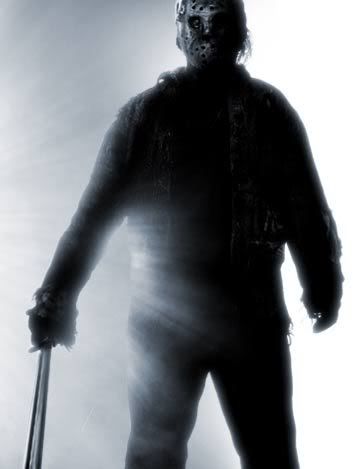












![Brotherhood" (2006) [TV-Series]](http://photos1.blogger.com/x/blogger2/1421/379621144723082/211/z/425926/gse_multipart33129.jpg)







No comments:
Post a Comment